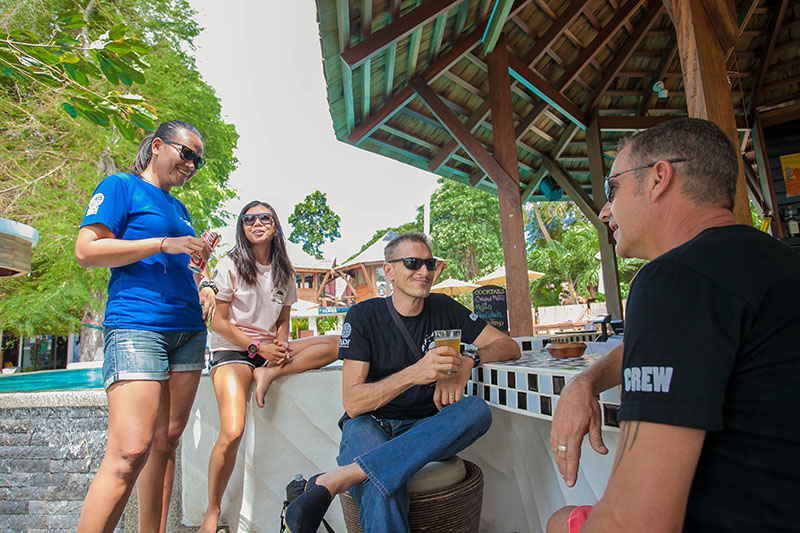What deeper skills can you expect to learn when making the leap from PADI Assistant Instructor or Divemaster to Dive Instructor?
Nobody can see into the future. If we could, we all would have started diving at 10, worked our way up through the PADI ranks, and settled in a decadent dive resort to dive, dive and dive more. But we can see what to expect when going from PADI Assistant Instructor or Divemaster to Open Water Scuba dive Instructor and beyond. Here are three deeper insights you’ll gain as a PADI Professional and diver when you make that leap.
What does it mean to take the step from Divemaster to Dive Instructor?
1. Be a better assistant. One of the most underrated benefits of becoming a PADI Instructor is that it can make you better at assisting. Even if your heart is in assisting an instructor – whether it’s because you love the one-to-one interaction with students or just prefer the role – learning more through the IDC/IE process will make you even better.
For starters, as a PADI Open Water Scuba Instructor you’ll increase the instructor-to-student ratios – qualified assistants make ratios more ideal, but having two instructors allows you, or the dive center you work with, to further optimize student numbers. Second, if you’re one of the many assistant instructors/divemasters who enjoys helping students who are having troubles, becoming an instructor allows you to take these students aside, practice skills until they meet the performance requirements, assess their performance and catch them up on anything they’ve missed before rejoining the bigger group. You’ll also be able to step in when “stuff ” happens (and it always does). Imagine the instructor is stuck in traffic – everything grinds to a halt, unless the assistant is a fully qualified instructor. Finally, as a PADI Instructor you’ll better anticipate the needs of the lead instructor. And, for someone who loves assisting, that’s the greatest gift of all.
2. Learn why you do what you do. Though assistant instructors/divemasters learn a lot through assisting dive courses and programs, it’s when you go through the IDC/IE that learning to teach becomes more formalized and you see dive skills and knowledge as a teacher does. As an assistant instructor/divemaster, you’ve practiced enough to know and understand how certain skills are taught. The rigorous learning environment of the IDC/IE emphasizes this knowledge so that you further understand basic learning theory and why skills are taught the way they are.
3. Receive hands-on training from seasoned pros. The mentoring relationship between teacher and student probably began when you got your PADI Rescue Diver certification and continued through divemaster. This relationship grows stronger during the IDC/ IE, when assistant instructors and divemasters learn from seasoned PADI Pros – Course Directors and IDC Staff Instructors who do this, and do it well. Since the IDC and IE are conducted separately, there is a strong mentoring relationship with your Course Director and IDC Staff Instructors, all aimed at guiding you to success in becoming, and being, a PADI Open Water Scuba Instructor. You learn from their experiences and learn more in the mentor-protégé relationship.
Change from a PADI Divemaster to Dive Instructor in Thailand at one of the best dive schools in Asia and get your PADI Instructor certification after completing your PADI IDC program. Prepare for the real world by taking the MSDT Internship at Sairee Cottage Diving. This is an eco friendly IDC program including free environmental lectures on topics such as ProjectAWARE and CoralWatch. Watch dive instructor videos on our YouTube channel.
Like & Share


